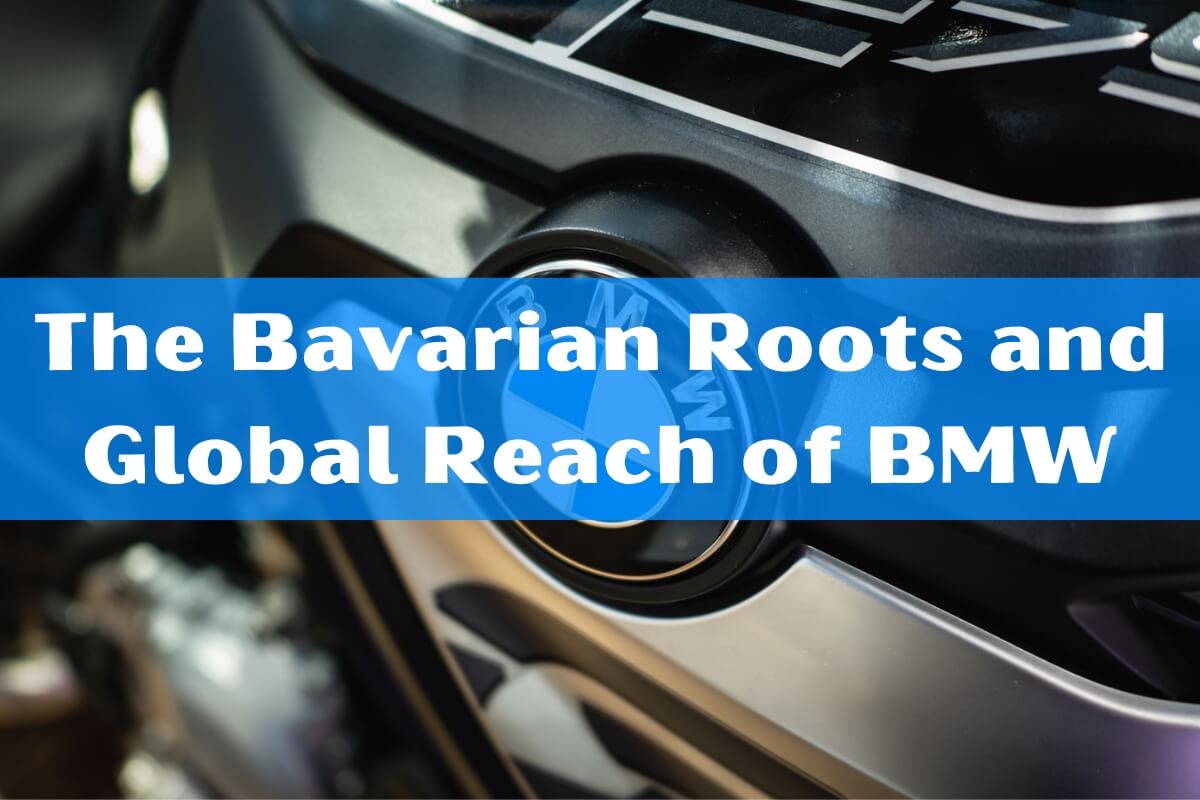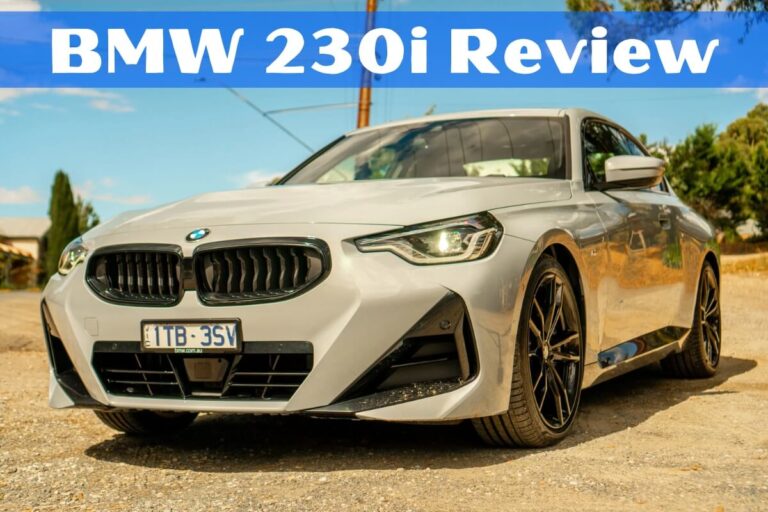Where is BMW From?

BMW, or Bayerische Motoren Werke, is a German multinational corporation that has become one of the world’s most prestigious and recognizable automotive brands. While the company’s origins can be traced back to the early 20th century in the state of Bavaria, Germany, its reach and influence have since expanded far beyond its Bavarian roots. In this comprehensive article, we’ll explore the fascinating history and global footprint of BMW, delving into the company’s beginnings, its evolution into a luxury automotive powerhouse, and its current presence on the international stage.
The Bavarian Birthplace of BMW
BMW’s story begins in 1916, when the company was founded in Munich, the capital of the German state of Bavaria. Originally known as Bayerische Flugzeug-Werke (Bavarian Aircraft Works), the company started out by producing aircraft engines. It wasn’t until 1922 that the company adopted the name Bayerische Motoren Werke, or BMW, which translates to “Bavarian Motor Works” in English.
The choice of Bavaria as the company’s home base was no accident. Bavaria, with its rich industrial and engineering heritage, provided the perfect environment for BMW to thrive. The region’s tradition of craftsmanship, innovation, and technical expertise laid the foundation for the company’s success in the automotive industry.
The Iconic BMW Logo and Its Bavarian Roots
The distinctive BMW logo, with its blue and white quadrants, is a direct nod to the company’s Bavarian origins. The colors and design are inspired by the Bavarian state flag, which features a white and blue diamond pattern. This iconic logo has become synonymous with the brand, instantly recognizable to car enthusiasts and aficionados worldwide.
The Early Years: From Aircraft Engines to Motorcycles and Automobiles
In the early years, BMW’s focus was primarily on aircraft engine production, supplying engines for various military aircraft during World War I. However, after the war, the company had to diversify its product offerings to stay afloat. This led to the introduction of the company’s first motorcycle, the BMW R 32, in 1923.
The transition from aircraft engines to motorcycles and, eventually, automobiles was a natural progression for BMW. The company’s expertise in engineering and its commitment to quality and performance proved to be valuable assets as it ventured into the world of two-wheeled and four-wheeled vehicles.
The Iconic BMW 3 Series and the Company’s Reputation for Performance
One of the key moments in BMW’s history came in 1975 with the introduction of the BMW 3 Series. This compact, sporty sedan quickly became the company’s best-selling model and helped solidify its reputation as a manufacturer of high-performance, driver-focused vehicles. The 3 Series, with its perfect balance of power, handling, and luxury, has remained a cornerstone of the BMW lineup for decades, cementing the company’s status as a leader in the premium automotive market.
BMW’s Global Expansion and Manufacturing Footprint
While BMW’s roots are firmly planted in Bavaria, the company has since expanded its operations and manufacturing capabilities around the world. Today, BMW has production facilities in several countries, allowing it to better serve its global customer base and respond to local market demands.
Manufacturing Facilities Across the Globe
In addition to its headquarters and main production hub in Germany, BMW has established manufacturing plants in the following locations:
- Germany: Berlin, Dingolfing, Landshut, Leipzig, Munich, Regensburg, Wackersdorf
- Austria: Steyr
- Great Britain: Oxford (MINI production)
- China: Shenyang
- United States: Spartanburg, South Carolina
This global network of production facilities enables BMW to leverage local expertise, resources, and infrastructure to produce a wide range of vehicles tailored to the needs and preferences of consumers around the world.
Expanding Reach and Diversifying Product Offerings
As BMW has grown into a truly global brand, it has also diversified its product portfolio to cater to a broader range of customers. In addition to its iconic sedans and sports cars, the company now offers a wide range of SUVs, crossovers, and electric vehicles under the BMW, MINI, and Rolls-Royce marques.
This diversification has been crucial in allowing BMW to maintain its position as a leading luxury automaker, adapting to changing consumer preferences and market trends while remaining true to its Bavarian heritage and commitment to performance and engineering excellence.
The BMW Group: A Diversified Automotive Powerhouse
Today, BMW is part of a larger corporate entity known as the BMW Group, which encompasses several prestigious automotive brands. In addition to the core BMW brand, the group also owns MINI, a iconic British marque known for its fun, compact vehicles, as well as Rolls-Royce Motor Cars, a storied luxury brand that has been part of the BMW family since 1998.
The BMW Group’s Impressive Global Footprint
The BMW Group has a truly global reach, with sales and operations in virtually every major automotive market around the world. In 2022, the company reported global sales of over 2.3 million vehicles, solidifying its position as one of the world’s leading luxury automakers.
The company’s success can be attributed to its unwavering focus on innovation, performance, and customer satisfaction. Whether it’s the sleek and powerful BMW sedans, the stylish and nimble MINI hatchbacks, or the exquisite Rolls-Royce limousines, the BMW Group has built a reputation for delivering vehicles that are not only a joy to drive but also a source of pride and prestige for their owners.
The Future of BMW: Embracing Electrification and Sustainable Mobility
As the automotive industry continues to evolve, BMW has positioned itself at the forefront of the transition towards electrification and sustainable mobility. The company has made significant investments in the development of electric vehicles (EVs) and alternative propulsion systems, with the launch of the all-electric BMW i3 in 2013 and the subsequent expansion of the BMW i lineup.
BMW’s Commitment to Sustainable Mobility
BMW’s commitment to sustainable mobility is not just limited to its electric vehicle offerings. The company has also implemented various initiatives to reduce its environmental impact, including the use of renewable energy sources, the implementation of sustainable manufacturing practices, and the development of recycling programs for its vehicles.
As the world becomes increasingly conscious of the need to address climate change and reduce greenhouse gas emissions, BMW’s focus on electric and sustainable mobility will undoubtedly be a key driver of the company’s future success and growth.
Conclusion: BMW’s Bavarian Heritage and Global Influence
BMW’s story is one of humble beginnings in the heart of Bavaria, Germany, and a remarkable journey to becoming a globally renowned automotive powerhouse. From its early days as an aircraft engine manufacturer to its current status as a leader in luxury, performance, and sustainable mobility, BMW has consistently demonstrated its ability to innovate, adapt, and exceed the expectations of its customers around the world.
Whether you’re captivated by the iconic BMW logo, the thrilling driving dynamics of the 3 Series, or the pioneering electric vehicles of the BMW i lineup, it’s clear that the company’s Bavarian roots and global reach have played a crucial role in shaping the automotive industry as we know it today. As BMW continues to evolve and embrace the challenges of the future, one thing is certain: the Bavarian Motor Works will remain a symbol of excellence, innovation, and the relentless pursuit of the ultimate driving machine.






